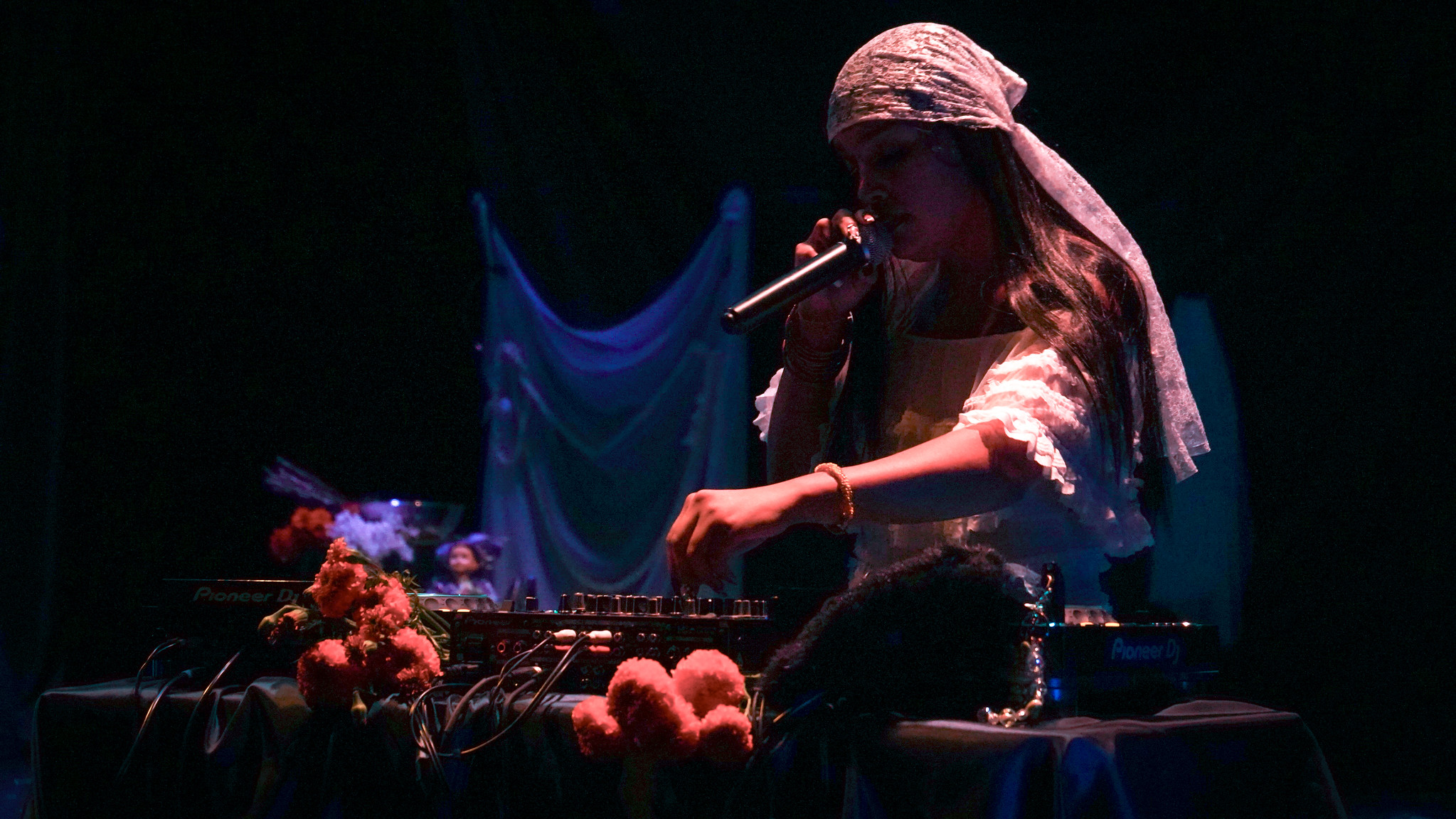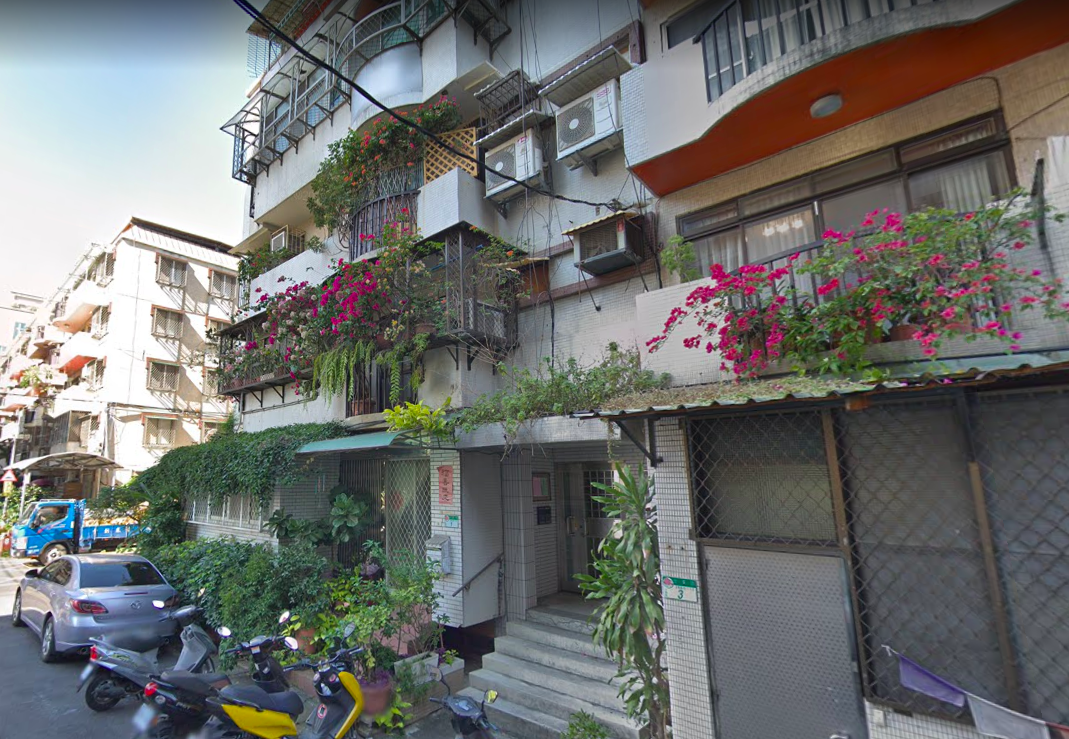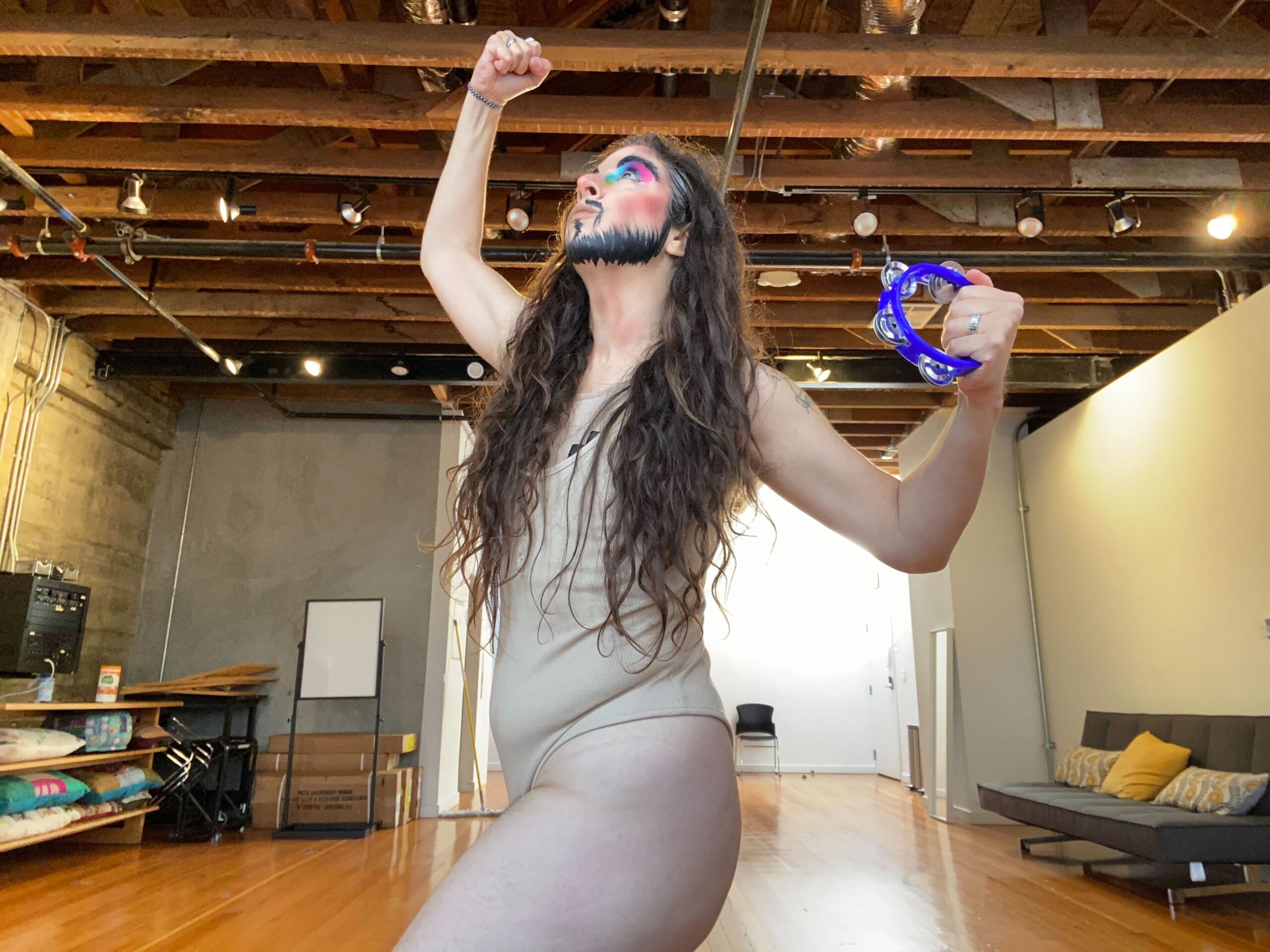I am a dancer, choreographer, and the artistic director of Lenora Lee Dance. For the last few years I’ve been developing large scale interdisciplinary works that are deeply rooted in the stories of the Asian American experience, performed and supported by the artistic and cultural communities I’ve had the honor to be a part of here in San Francisco. What is manifesting is greater in depth, artistry, commitment, and beauty than anything I could have ever envisioned.
Growing up I always wondered what it would feel like to be part of a movement and to understand what moves people to participate, to risk of themselves, to become committed and involved. I see and hear about political movements, activist movements, human rights movements. In the shifting of my perspective throughout the process of making my newest work “Reflections,” I find myself turning around witnessing the artists I am working with, and realizing just how much of a movement I feel I am blessed to be a part of. Within the next few paragraphs, I hope to share with you with an entry into this movement manifested in a creative process and the path “Reflections” has taken me on in aligning the many facets of my life and my artistic work with the communities I belong to.
Premise for “Reflections”
My initial intrigue at the beginning of creating this piece was to figure out how we can tell the stories of our forefathers, mothers, and of the communities around us with a palette of dance, Chinese and Japanese martial arts, video, text and music. Since then, the palette has grown to include Chinese lion dance as an integral part of the work. Through this piece and my previous work “Passages” I try to bring to light challenges immigrants come upon in starting a life in the United States. With “Reflections” I also want to provide some perspective on issues young men can face in finding a sense of place in the American culture given socio-economic and ethnic differences and the fact that the traditions and values of family conflict with those of society.
The “Movement” of Martial Arts
In my study of martial arts and work with martial artists, what I’ve come to realize with awe and amazement is the inherent beauty of the forms and the deep respect each artist I witness has for each other as well as for the practice, tradition, discipline, and lineage of the art. Each movement is clear and distinct and has an application. Nothing is wasted or expended for no reason. There is no movement for movement’s sake. Thus the level of integration for those who have practiced intensely for years is so very high. The breath, the stance, the grounding, the harvesting of internal and external energy to generate a force and momentum so strong, it’s like an undercurrent that sweeps a person away in one strike.
Along with gaining an understanding of one’s pure potential manifested internally and externally through mental, physical, spiritual, and emotional strength and practice, is this abundant flow of generosity and gifts that are shared with one another as a community. There is a passion to go deeper in one’s practice of understanding the self, the self in relation to others, and the self amongst the environment. I see this as being visible and invisible at the same time, being in the foreground and background simultaneously. The practice is a spiritual way of life at its core and the connection between practitioners is intimately woven.
Art , Visibility and “This Movement”
I would like to share another angle on visibility and invisibility, being in the foreground and background. For Asian Americans there has been a lack of voice, visibility, and representation in this city of San Francisco that is over 33% Asian, and in the Bay Area which is close to 25% Asian. There is a great need to have our stories and our histories told by those who have lived them and witnessed them in our communities. They need to be told by us in a way that represents our truths and our visions and our artistry, uncensored and unedited by publishers, presenters, and curators.
With my last work “Passages: For Lee Ping To” I wanted to bring to the forefront and share the history and subsequent consequences of the 1882 Chinese Exclusion Act which was the first American law passed to limit the immigration of a people from another country. It affected not only generations of Chinese immigrating between 1882 and 1965, but it also had great impact on the lives of the succeeding generations and the majority of Cantonese Chinese in the United States. Through community engagement activities that have involved Chinatown youth, seniors and college students (reaching 11 campuses in California and New York) I was able to share “Passages” with over 3,000 people from July 2010 through April 2011.
With “Reflections” I am excited to bring forth stories of three generations of men and their peers as they realize their identity and community as Chinese Americans. This is the first ever collaboration between Lenora Lee Dance, Kei Lun Martial Arts, and Enshin Karate, South San Francisco Dojo. I am so very blessed to have this opportunity to work with these master artists, along with media designer Olivia Ting, composer Francis Wong, poet Genny Lim, and videographer Ben Estabrook.
Through “Passages” and now with “Reflections” I am continuing key community-based collaborations with Asian Improv aRts, Asian Pacific Islander Cultural Center, the Chinese Historical Society of America Museum, Angel Island Immigration Station Foundation, Cameron House, CounterPULSE, and White Wave Dance (New York). Also included in the touring season this fall are engagement activities at the Asian/Pacific/American Institute at New York University, and the Museum of Chinese in America (New York).
This article was published in the September 2011 issue of In Dance, a monthly magazine published by Dancers’ Group, serving the San Francisco Bay Area and beyond.
Share This!
More Good Stuff
Ātl Verde: "Ātl," the Nahuatl word for water, symbolizing the river flowing through my evolution—connecting past, present, and future. This piece reflects my journey as
Unsettled/Soiled Group is a group of East, Southeast, and South Asian diasporic movers, makers, and settlers on Ramaytush and Chochenyo Ohlone land. Unsettled/Soiled Group is led by June Yuen Ting, one of CounterPulse's 2022 ARC Performing Diaspora artists and will debut Dwelling for Unsettling alongside VERA!'s Try, Hye!, Thursday through Saturday, December 8-10 & 15-17, 2022
VERA! (they/them) is a queer Armenian American drag king, dancer, and community activist. They are one of CounterPulse's 2022 ARC Performing Diaspora artists and will debut Try, Hye! alongside Unsettled/Soiled Group's Dwelling for Unsettling, Thursday through Saturday, December 8-10 & 15-17, 2022




